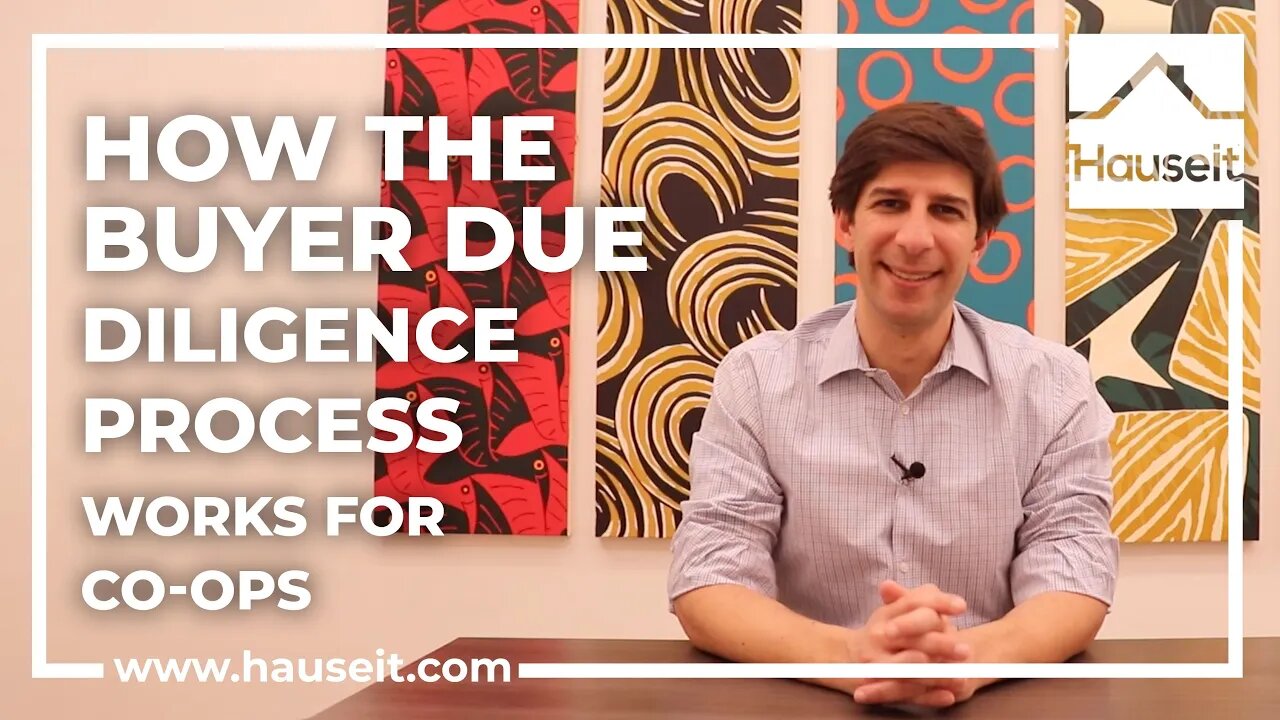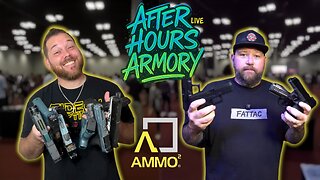Premium Only Content

How the Buyer Due Diligence Process Works for Co-ops
How does the buyer due diligence process work for co-ops in NYC? We’ll break down what’s involved and explain what the goals are. My name is John Moss, an attorney and partner at Moss & Moss LLP (https://www.mossandmoss.com/) , a law firm started by my family in 1997. A large portion of our work is residential real estate transactions. Let's get started!
Save 2% When Buying in NYC: https://www.hauseit.com/hauseit-buyer-closing-credit-nyc/
Save 6% When Selling in NYC: https://www.hauseit.com/agent-assisted-fsbo/
Unlike most other jurisdictions, real estate contracts in New York City do not have a rescission period or an attorney review period, meaning that once you sign the contract generally speaking you’re legally bound to buy the property. But obviously you as the buyer need to do your due diligence review…so the review actually happens before you sign the contract.
To give a little context, in the course of the transaction the broker will be handling the negotiation of the big ticket items: such as, the purchase price, the approximate closing date, whether the contract is contingent on the buyer getting their financing, and a few other details. Once the offer is accepted, the attorneys pick up the ball and the seller’s attorney issues the contract for the buyer’s attorney to review.
While the attorneys are reviewing and negotiating the details of the contract, the buyer’s attorney is also reviewing the due diligence materials.
The due diligence review for an apartment in a cooperative corporation consists of four basic elements: (1) reading the past year or two’s worth of minutes of the coop board meetings, (2) asking follow-up questions or submitting a more extensive questionnaire to the managing agent based on the review of the minutes; (3) looking over the financials of the building; and, (4) glancing at the offering plan and the by-laws. I should note that due diligence of newly constructed buildings consists primarily of reviewing the offering plan, but that’s a different subject for another time.
The coop board meeting minutes generally describe how the coop board runs the building and what they’ve been working on. The minutes typically describe what major capital improvements the building has undertaken to date and what they have considered starting on in the near future. The minutes also usually talk about how the board interacts with the shareholders, reporting on disputes and litigation, if any, as well as other requests or inquiries. There is some financial information in the minutes, but – since we’re also reviewing the financial statements…more on that in a minute – the financial information we really want to focus on is how often the board has increased the maintenance. Lastly the minutes usually report on approvals or disapprovals of incoming purchase requests, sublet requests, and alteration applications.
The reason I keep saying “typically” or “usually” is because the minutes for each board are somewhat idiosyncratic. Some minutes have lots of information and details, some are very bare bones. However, even the style of the minutes can tell you a lot about the building.
The purpose for looking at the minutes is three-fold. Firstly, we want to know the condition of the building in general and the apartment specifically. Secondly, we want to know what major capital improvements are coming soon so that we can determine whether you as a buyer will need to make extra financial contributions to the building in addition to your monthly maintenance. Thirdly, because the coop board has such a huge impact on how you use your apartment, we want to know if the board is super-hands off or incredibly nit-picky…for the record, boards are usually somewhere in between, but we want to make sure. Even if there isn’t a lot of details in the minutes, it still can give us a sense of how they conduct themselves.
The review of the board meeting minutes historically happened at the managing agent’s office and the minutes were closely guarded confidential documents that never left that office. With COVID and remote working, that may be changing, and it’s an open question on how boards will handle things in the future. For now, it’s probably safe to assume that your attorney will continue to review the minutes and then report back to you, rather than be able to provide you with the text of the minutes directly.
Save 2% When Buying in NYC: https://www.hauseit.com/hauseit-buyer-closing-credit-nyc/
Save 6% When Selling in NYC: https://www.hauseit.com/agent-assisted-fsbo/
.
.
Hauseit LLC, Licensed Real Estate Broker
Tel: (888) 494-8258 | https://www.hauseit.com
_
#hauseit #hauseitnyc
-
 LIVE
LIVE
Lofi Girl
3 years agolofi hip hop radio 📚 - beats to relax/study to
165 watching -
 18:03
18:03
Nikko Ortiz
2 days agoEBT Meltdowns Are Insane...
60.7K141 -
 2:02:46
2:02:46
Badlands Media
1 day agoDevolution Power Hour Ep. 405: Live from Cocoa Beach
203K71 -
 1:33:56
1:33:56
Man in America
12 hours agoElon Says the Quiet Part Out Loud: AI Will RULE Humans, No More Money, BILLIONS of Robots
62.8K63 -
 51:25
51:25
The Connect: With Johnny Mitchell
13 hours ago $34.65 earnedInside The REAL Narco State: The Colombian Drug Cartels DOMINATING The Global Cocaine Trade
40.7K17 -
 3:57:53
3:57:53
MattMorseTV
10 hours ago $119.74 earned🔴Saturday Night NEWS + DRAMA.🔴
117K84 -
 2:02:09
2:02:09
BlackDiamondGunsandGear
12 hours agoAfter Hours Armory / Leaked GLOCK images / Gunderware
34.3K6 -
 6:19:17
6:19:17
SpartakusLIVE
11 hours agoSaturday SPARTOONS || WZ to Start - REDSEC or ARC Later???
38.4K2 -
 19:23
19:23
Clintonjaws
1 day ago $19.52 earnedKaroline Leavitt STOPS Trump's Meeting & Grills Reporters Leaving Them Speechless
46.4K53 -
 2:02:09
2:02:09
DLDAfterDark
8 hours ago $4.57 earnedYou Keep a GUN Inside Your Draws?? Let's Talk About Your Tactical Undies
21.6K7